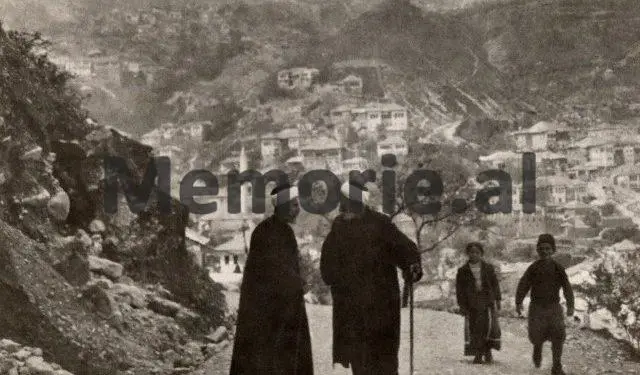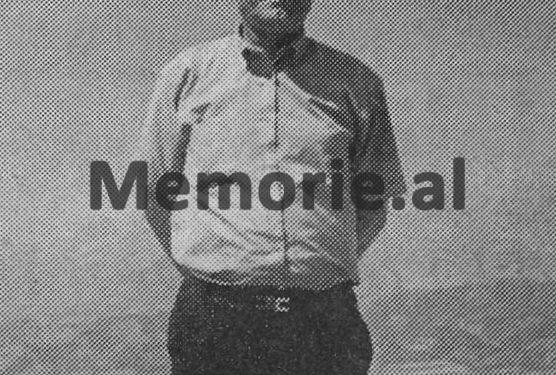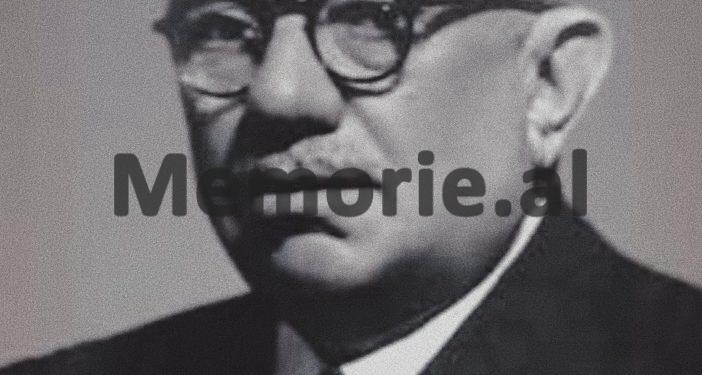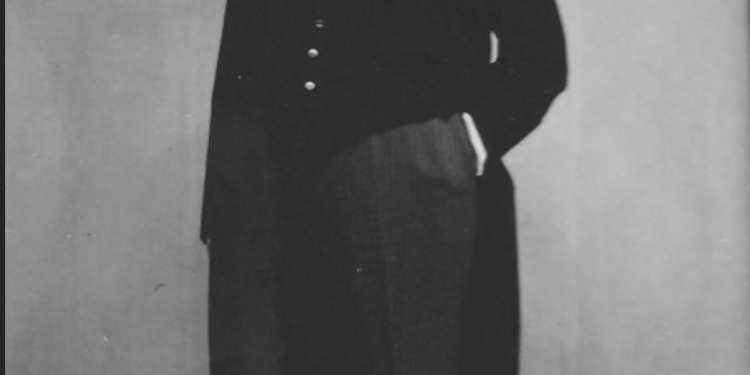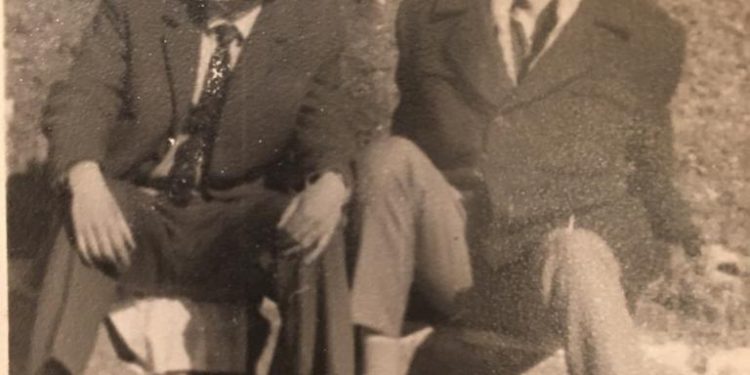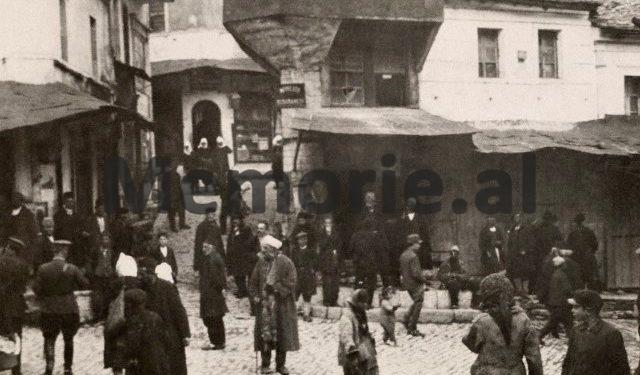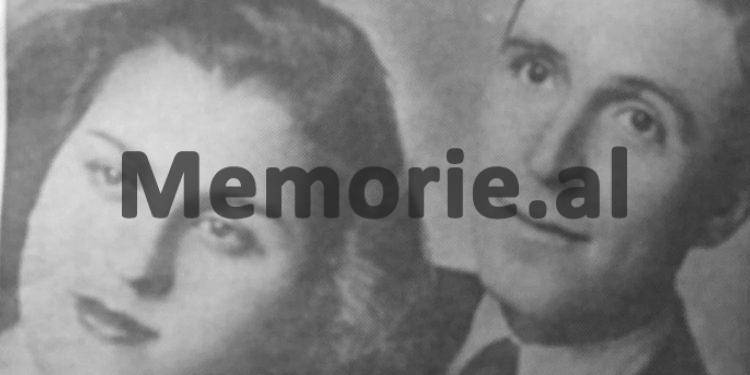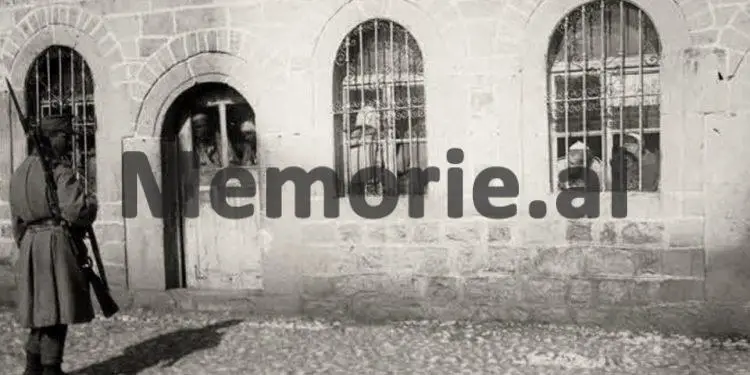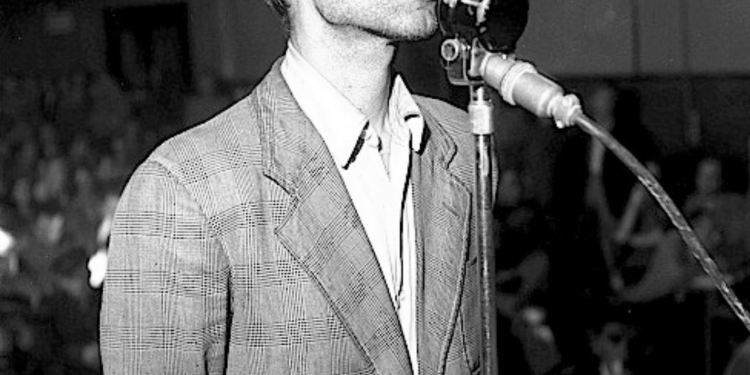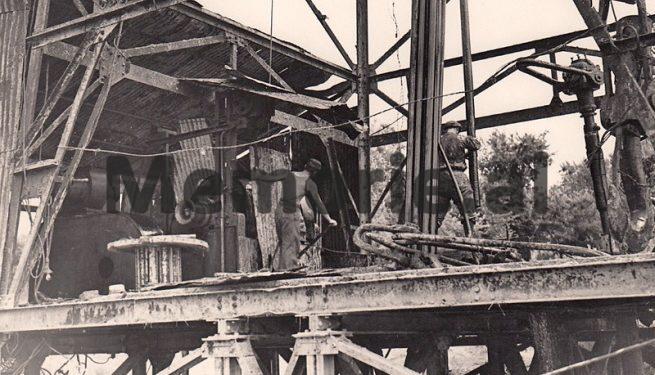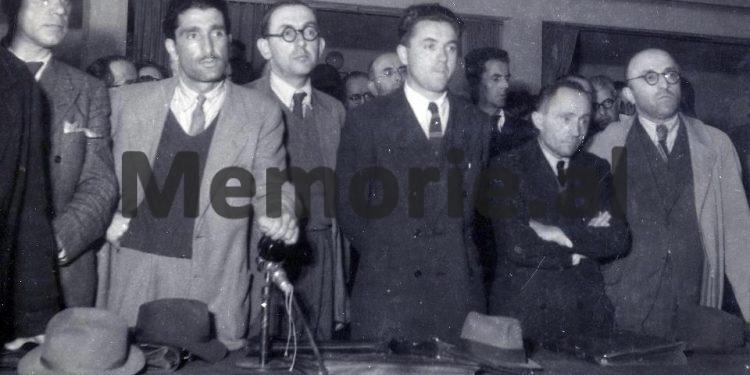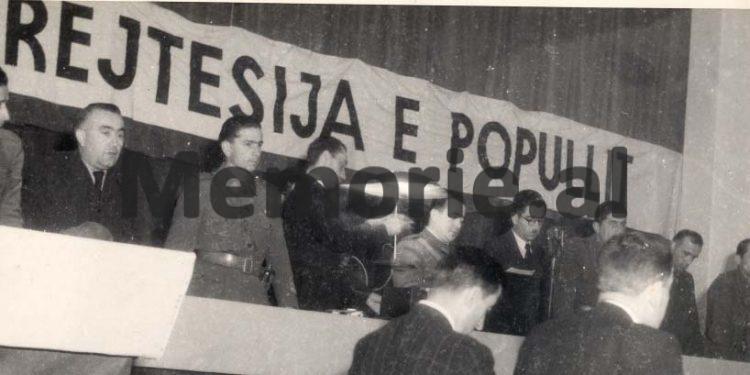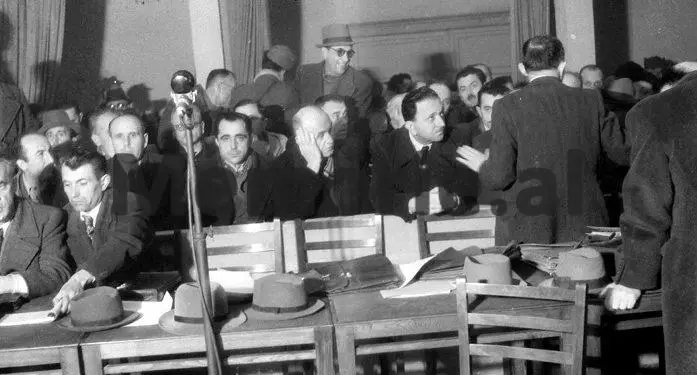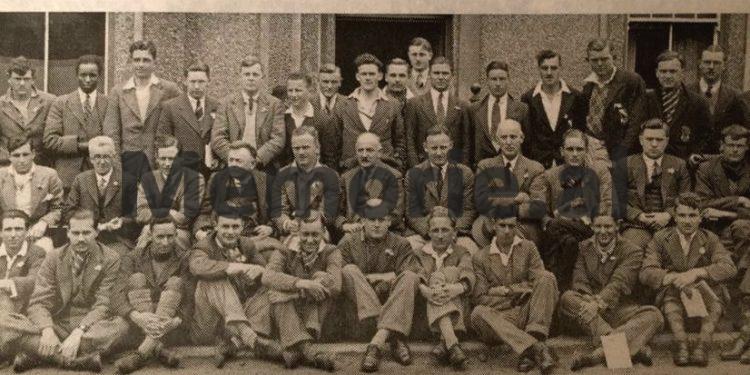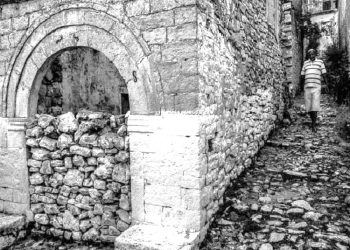Dashnor Kaloçi
Memorie.al publishes the unknown story of the Alizoti family, originally from the city of Gjirokastra and originating from Turkey, where one of its most famous suckers, Fejzi bej Alizoti, graduated in Civil Administration in Istanbul, after serving several years as Mytesarif in Lebanon and other countries that were under the ‘entrance’ of the High Gate, in 1905 he returned to Albania, where he was appointed prefect of Korça and with the establishment of the government of Vlora in November 1912, under the leadership of Ismail Qemali, he was appointed Secretary of State and Minister of Internal Affairs in the vacant position of Esat Pasha Toptan. Fejzi Bey’s engagement in politics by being elected as a deputy of Gjirokastra and Minister of Finance in the government of Iljaz Vrioni in 1927, as well as Secretary of State and Minister of Finance in the government headed by Shefqet Vërlaci in 1941, as well as Extraordinary Commissioner of the Albanian government in Kosovo, which led him to be arrested by the communists in November ’45 and sentenced to death in the ‘Special Court’. The tragic story of the family of Fejzi bey Alizoti who was persecuted by the communist regime of Enver Hoxha, starting with his son, Rizai, a graduate of Oxford, who was executed by hanging on a rope in the middle of Kuçova in 1947, to other descendants who suffered in camps and prisons until the fall of Enver Hoxha’s communist regime.
The origin of the Alizoti family
The origin of the Alizoti family, which in the first years of the last century was one of the most famous families in the whole south of Albania, is from the city of Gjirokastra, where in 1910 Riza Alizot was born. That family is descended from Alizot Pasha, who according to Ottoman documents, was appointed by the High Gate as Vizier (Pasha) of Ioannina in 1784, stayed in that office until he was overthrown by Ali Pasha Tepelena, who took them and the presidency of the pasha. Riza’s father was Fejzi Alizoti, who was born in Gjirokastra in 1868 and at a very young age he was sent to Istanbul, where he was educated, graduating from “Mylqija”, which produced cadres for the Ottoman administration, as a lawyer. financier and diplomat, etc. In that school, which at that time was known as one of the most prestigious in Turkey, was educated and the father of Fejzi (Hasan Alizoti), who graduated from the Faculty of Law of the capital of the Ottoman Empire and after graduation, he practiced law in the same Istanbul. Fejziu graduated from the “Mylqije” school with very high results and then attended the university in the branch of Economics and Civil Administration, being titled Mytesarit (Prefect) and was appointed in Lebanon, and in many other Arab countries, which at that time did part of the Ottoman Empire. After a long service to the High Gate, Fejzi Alizoti was allowed to return to Albania, also with the duty of Mytesarif, which he had performed in his homeland in 1905 and was appointed in the city of Korça with the duty of Prefect, where he worked until 1912. During the years he worked as Prefect of Korça, Fejziu took great care of Albanian education and managed to reopen an Albanian school that had been closed to the Turks. Closely associated with many of the most prominent patriots of that province, using his post, Fejziu released from prison many Albanians held in isolation from the Greek church. Likewise, Fejzi Alizoti was one of the main organizers of the assassination of a Greek priest (widely heard throughout the Greek Patriarchate), who nurtured chauvinistic intentions against the two main cities of southern Albania, such as Korça and Gjirokastra. After the assassination of the Greek priest, Fejzi’s first conflicts with the Turkish government began.
Secretary of State in the government of Ismail Qemali
After serving for several years as Prefect of Korça, with the formation of the government of Vlora by Ismail Qemali in November 1912, Fejziu was appointed to the post of Secretary of State, after having participated in raising the flag as a delegate of Gjirokastra. Shortly after this task, Fejzi Alizoti would hold the post of Minister of Internal Affairs in that government for some time, instead of Esat Pasha Toptan. After the fall of the Government of Vlora and the arrival of Prince Vid, Fejziu, participated in the government of Durrës, being appointed as Prefect of Shkodra and later in the post of Minister of Finance. With the fall of the government of Durrës, he settled in Shkodra, where together with Luigj Gurakuqi, he was part of a financial commission in the administration of that city, where he was later arrested by Serbs. With the intervention of Austro-Hungarian forces, Fejziu was able to be released from the custody of the Serbo-Montenegrins, and with the formation of the Lushnja government in 1920, he left Albania and settled in Italy. In 1924, with the return of Zog to power as Prime Minister, Fejziu was called by him to that cabinet and on February 12, 1927, he took the post of Minister of Finance in the government headed by Iljaz Vrioni, after he had previously been elected. as a deputy of Gjirokastra, a position in which he remained until October 21 of the same year, with the fall of that cabinet. After the occupation of Albania by fascist Italy in April 1939, Fejziu for almost two years completely left politics. In 1941, after many interventions by some of his well-known political friends, he accepted the post of Extraordinary Commissioner for Kosovo, which was entrusted to him by the government of Mustafa Kruja. In this task he worked for three years and with the capitulation of Italy, he returned to Tirana.
Fejziu refused to leave Albania and goes to the ‘Special Court’
With the beginning of the departure of the Germans from Tirana in the autumn of 1944, Fejzi Alizoti, was announced by Bedri Spahiu to leave Albania, that he was on the list of people who would be shot. Thus, one day at the end of October 1944, in front of the Dajti Hotel, two or three of his friends (former ministers in the Albanian governments of the Monarchy period) invited him to get in their car to left Albania before Enver Hoxha’s partisans entered Tirana. “I am 76 years old, what will the communists do to me, I have not done anything to the detriment of Albania”, Fejziu replied to his friends who took the road to leave Albania. A few days before the liberation of Tirana, even though he was already at an advanced age, Fejziu was arrested by the partisans and appeared before the ‘Special Trial’ that took place in March 1945, where there were about 70 former officials in the dock and senior military men of the Albanian governments, from that of Ismail Qemali, to that under German occupation in the autumn of ’44. Thus, on March 3, 1945, the newspaper “Bashkimi”, among other things, wrote: “Today Fejzi Bey with friends is in the basket of betrayal, is before the court of justice, before the court of the people, accused as a traitor of dirty face”. The unscrupulous, shameless crocodile saw “parole d’honneur”, such as Fejzi Alizoti – today he has fallen into the trap! After the trial ended, on April 13, 1945, prosecutor Bedri Spahiu and trial president Koçi Xoxe demanded his death sentence. Thus, in the long list of 60 people who appeared before that special court, Fejzi Alizoti was the first among 19 people who were sentenced to death. It is said that at the time of the shooting, where he was wearing a white overcoat, he was the only one who did not catch the bullets. After a few light scratches, he addressed the firing squad, saying: “Do you see that the bullet also forgave me, because I am innocent…”?! After his words, a senior officer who later took the rank of general approached him and shot him several times in the head with a pistol.
Fejziu’s son, Riza Alizoti, graduated from Oxford
Riza Alizoti was Fejziu’s fifth child from the two sons and three daughters he had. The first of the children was Hasan, who had completed his higher studies in Austria and during the occupation period (1939 – 1944), had worked in the state administration and the last three years of the War, found him as prefect in Berat. After Hasan, came three sisters: Fitreti, Balkizja and Safetja, all three of whom graduated from “Robert College” in Istanbul. After them, the fifth came Rizai and like all his predecessors and he was sent to be educated in Istanbul, where he graduated from “Robert College”. After that, in the late 1920s, Rizai returned to Albania and continued the American Technical School in Tirana (known as the Fultz school), where it was easier for him to obtain a scholarship abroad. Upon graduation from this school with very high results, he benefits the only one from all his matura, a right to study for the renowned Oxford University in London. At this university, Rizai enrolled in the branch of Petroleum Exploration Engineering and completed his studies in 1935, being among the only Albanians to graduate from that University at that time. After graduating in London, Rizai was offered a job in England by two major oil companies, but he declined, saying: “My poor homeland has paid me a scholarship for seven years since “I studied here and I am forced to return to my country.”
Petroleum engineer in Kuçova and decorated by President Nishani
In 1936, Rizai returned to Albania and was assigned to work in his profession as an engineer in the oil exploration wells in Kuçova, which at that time was under the administration of an Anglo-Persian joint venture. After working for two years in this large company, he was sent for postgraduate studies in Strasbourg, which Rizai completed in two years and then returned to Kuçova, where he works on behalf of the Italian company “AIPA”. After some conflicts he created with the leaders of the Italian firm in defense of the rights of Albanian workers, he was arrested by the Italians and sent to the Porto-Romano prison in Durrës. He stays in this prison for several months and with the intervention of his father Fejziu, he was able to be released from there. After his release from prison, he did not return to work in the oil wells in Kuçova, but started working at the Ministry of Economy in Tirana. Throughout the war he stayed and worked in Tirana, not interfering at all in politics, trying to stay neutral. Based on this fact, immediately after the end of the War, in January 1945, he was again assigned to work as a drilling and exploration engineer in Kuçova, in the State Oil Company, already under the administration of the communist government headed by Colonel-General. Enver Hoxha. During all the time that Rizai worked in that sector, he put into operation many oil wells that were closed by Italian firms. For this, Rizai was then decorated by the President of the Republic (Omer Nishani).
Sentenced to death in the “Special Court | and hang him on a rope in Kuçova
Seeing his high level of training in the oil field, many of the Yugoslav specialists working in Albania at the time offered him to go and work in Yugoslavia at a much higher salary, which he refused. In 1947, as part of a fierce war waged by the communist regime against many intellectuals and cadres who had graduated from schools in the West, he was arrested while working in Kuçova, accused of being part of the “Group of Deputies”. After being held for almost a year by the investigator, Rizai goes to trial and is sentenced to death (by hanging on a rope), with fabricated accusations, as if he had agitated and propagated against the ruling communist regime and sabotaged oil wells. Rizai was convicted with the so-called “Deputies’ Trial”, which took place with great fanfare in the hall of the “Kosova” Cinema, in Tirana, where some deputies, such as: Riza Dani, Shefqet Beja, Gjergj Kokoshi, etc., were accused that they had sought the permission of the opposition, since the elections of December 2, 1945. His execution took place by hanging on a rope, in the center of Kuçova, where he worked as a petroleum engineer.
The tragedy of the Alizoti family
After Riza was sentenced and executed by hanging, where one of the accusations leveled against him was that he had been an “Anglo-American spy” (for the fact that he had worked for the Anglo-Persian Oil Company), over his family a long ordeal of suffering and persecution would begin. Shortly after the shooting of Fejzi Alizoti (Riza’s father) by the Special Court in March 1945, Hasani (the first son of the Alizoti family), who had served as mayor of Berat, was arrested and sentenced to two years in prison. of War. Hasan was sentenced to only two years in prison and then exiled, because during the War, he had helped the partisans a lot. Of the three daughters that Fejzi Alizoti had (Riza and Hasan’s sisters), the eldest Fitneti, had been married since the time of Zog to a boy with Turkish citizenship, who was a family of pashas, his name was Sadi Pashallari. Sadriu had a degree in Civil Engineering and Architecture and throughout the time he came to Albania, he worked in the Ministry of World Affairs, which he continued even after the end of the war in the communist regime. Sadiu worked as an engineer in various companies in Tirana, where he died in 1970. After Riza’s execution, his wife Vera Ypi (granddaughter of Xhafer Ypi, former Prime Minister of Albania) was left with three young children, two daughters and a boy. Riza’s three children took his sisters, where Fitret, who had a Turkish husband and was in a better economic situation, took more care of the orphans. Vera, Riza’s wife, lived with one of her brothers and mother who was Tajar Zavalani’s sister, who were interned in the Tepelena camp. Prior to the deportation, Vera and her brother worked at the State Industrial Enterprise ‘Tulla’ in Tirana, while Fejziu’s only son, with his grandmother (Tajar Zavalani’s sister), had previously been interned in that camp. Vera’s other two brothers, Adnan and Rexhepi (Ypi), had finished school and graduated in Italy, Adnan had graduated from the Military Academy in Modena, and Rexhepi had graduated in Agronomy. The two Ypi brothers, seeing the brutal persecution of their relatives in Albania, never returned to their homeland and stayed in Italy, where Adnan worked for a long time in NATO structures as a soldier. By the early 1950s, he had served as an instructor at the 4000 Company training centers (in Munich and Karzeslatuten, West Germany) that had been opened at the time by Anglo-American intelligence to prepare for landing groups to land. in Albania with secret missions, aimed at recognizing the situation and preparing the ground in favor of an outside intervention to overthrow the communist regime of Enver Hoxha. Adnan died in 1993 in Italy, after several years of being released and retired as a former NATO soldier. While Vera Ypi, for a long time was subjected to suffering and persecution in places of internment where she was deported by the communist regime, such as in Villa-Bashtovë of Kavaja, Shijak, etc., and she was able to meet her young son, Fejziun, in 1963 in the town of Shijak, when he was only 8 years old. Vera Ypi passed away in 1968 in the village of Vila – Bashtovo in the district of Kavaja, where she spent the last years of her life in deep misery and shortly after, her mother, who was the sister of Tajar Zavalani, died.
Young Fejziu, son of Riza, 10 years in political prison
After the death of his mother (Vera) and grandmother, Fejzi Alizoti (father of Tomorr Alizoti, who is running in the April 25 elections with the Democratic Party), Riza’s only son was left without any support, as he had taken both sisters from long time his aunt (Fitreti who was married in Turkey). Remaining in a miserable condition and assisted by some of his friends and relatives, Fejziu, settles in Manëz, Durrës, where he starts working in the coal mine, after previously performing compulsory military service in the labor units. In that mine, Fejziu worked from 1967 until 1980, when he would be arrested by the State Security, on charges of “agitation and propaganda against popular power.” At his trial, the prosecutor read the claim, which read: “Defendant Fejzi Alizoti, son of the enemy of the Party and the people, Riza Alizoti, sentenced to death by hanging as an agent of the Anglo-Americans, and nephew of Fejzi Alizoti, sentenced to be shot “, former minister, MP, and prefect, in the government of satrap Zog. His two uncles fled to Italy, as agents of foreign intelligence”. As a result, Fejziu was sentenced to 10 years in prison, which he served mainly in the Spaç and Qafë Barit camps. His sentence would end in 1988, when he would be released two years early, which he had earned through work. Without any support, he would return to the Manza mine, where he had worked for 13 consecutive years until the day of his arrest. While his two sisters, Nezi and Sevimi, would work hard in the Construction Company “21 December” in Tirana. The long ordeal of suffering and imprisonment and interrogation for the Alizoti family, one of the most heard in Albania since 1784, would end only in 1990, when the communist regime in Tirana was forced by the international factor after the fall of the Berlin Wall. and the events in Romania, would make some concessions, such as the issuance of passports for installments held by people abroad. Concluding this, through some of his friends, Fejziu was able to obtain a passport in June 1990, to then go to Austria, where he had some relatives. But even though he was offered a job and comfortable living conditions, Fejziu returned to Albania immediately after the March 22, 1991 elections and he was called to work as a soldier in the General Directorate of Camps and Prisons in Albania, where he served until he left. retired in 2012. How not to leave in the middle of the ‘political journey’, which was started by the first Alizoti family since the first years of the last century, it has been continued for several years by Fejziu’s son, Tomorr Alizoti, who is running as a representative of the Democratic Party in the elections to be held on April 25 this year./Memorie.al




